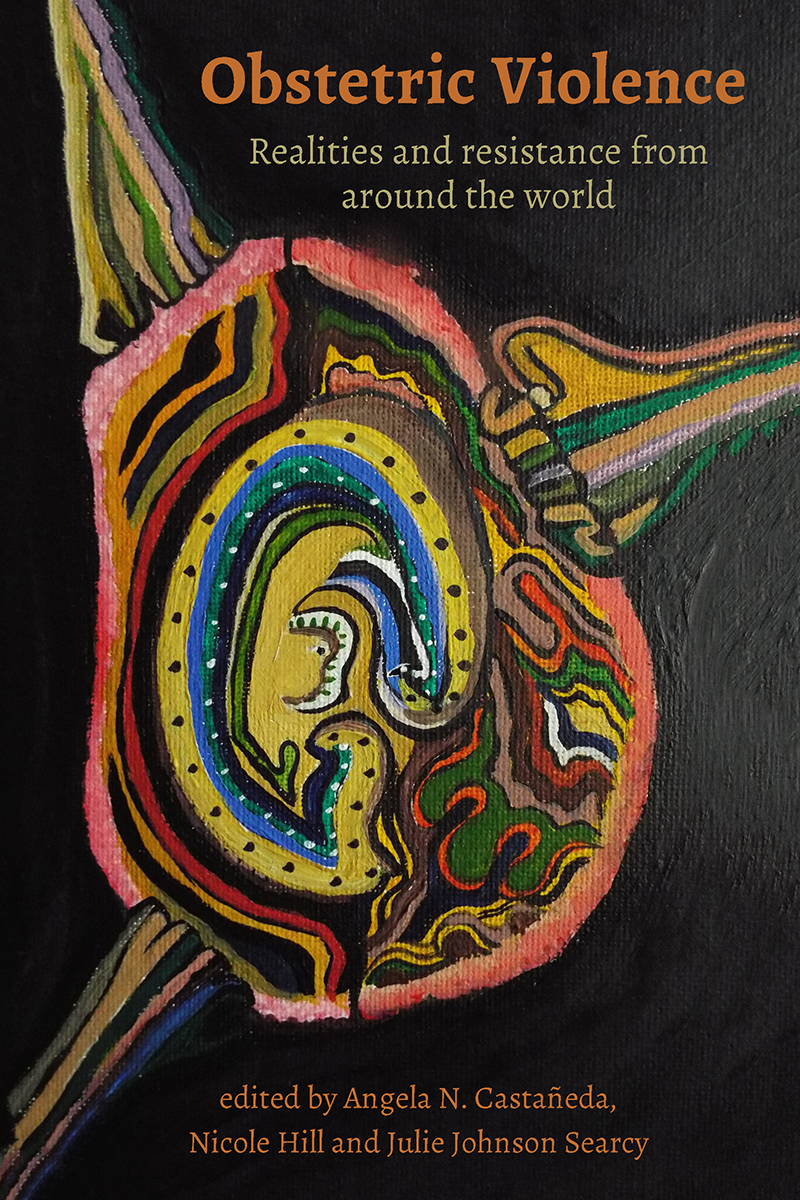
Price: $39.95
Page Count: 280
Publication Date: March 2022
ISBN: 978-1-77258-375-5
A compelling and illuminating multi-voice account that reveals/unveils the various shapes in which obstetric violence, one of the most normalized expressions of violence against women throughout the world, is expressed. A violence embedded in the social fabric in such a way that it has been perpetuated despite its devastating consequences in the lives of women, newborns, families and societies as a whole, and especially in those who are most vulnerable amongst them. Essential reading to recognize, name and address obstetric violence, opening the horizon for a discussion about giving birth to healthier and caring generations to come.
- Michelle Sadler, medical anthropologist, birth researcher and activist
Part I: Legislation and Policy
Root of the Poisonous Tree: Historical and Current Factors Contributing to Mistreatment in Birth in the U.S.A.
Farah Diaz-Tello, Indra Lusero, Colleen Campbell, Deborah Fisch, Saraswathi Vedam, Monica McLemore and Jacqueline K. Hammack
Protecting Hawaiʻi’s Birthkeepers and Midwives: Obstetric Violence and Hawaiʻi’s New Midwifery Law
Alexandra Kisitu
Public Policies and Obstetric Violence: An Anthropological Overview of Achievements and Challenges in Argentina
Patrizia Quattrocchi
Part II: Experiencing Obstetric Violence
Women speak out: Obstetric Violence in Egypt
Merette Khalil and Anna Rita Ronzoni
Obstetric Violence in the Age of Evidence-Based Medicine and the Contradictions of Care: An Autoethnographic Approach
Morgen A. Chalmiers
Racism in the Birth Room: Obstetric Violence in the US Context
Carolyn Fraker
Structural Vulnerability and Obstetric Violence among Childbearing Adolescents in the United States: Narratives of Care
Courtney L. Everson, PhD
Doulas as Witnesses to Obstetric Violence
Hillary Melchiors and Angela N. Castañeda
“As If I Were in a Hotel” vs. “This is a Hospital, not a Hotel!”: Relations between Material and Consumer Culture, Privilege, and Obstetric Violence in Portugal
Catarina Barata
Separated, Monitored, and Instructed: The NICU as a Site of Obstetric Violence
Laura Tolton
Part III: Advocacy, Resistance and Reframing
Constructing Obstetric Violence in Canadian News Media
Nicole Hill
“The Hospital Staff were the Enemy”: Online Narratives of Birth Trauma
Sarah Benbow and Jodi Hall
“Only Then Will the Buffalo Return”: Disrupting Obstetric Violence through Indigenous Reproductive Justice
Leslie Dawson and Terri Suntjens
Exposing Abortion-Related Obstetric Violence Through Activism in Latin America and the Caribbeani
Mariana Prandini Assis and Sara Larrea
“Everything is Obstetric Violence Now”: Contextualizing the Movement in Mexico
Lydia Dixon
Angela N. Castañeda is Professor of Anthropology at DePauw University. Her research explores questions on religion and expressive culture as well as the cultural politics of reproduction, birth and motherhood across the Americas. She specializes in the role of doulas in birth culture and is co-editor of Doulas and Intimate Labour.
Nicole Hill is a PhD candidate in sociology at the University of Alberta in Edmonton, Alberta, Canada. Her research interests include feminism, maternity, bodies, violence, and culture. She has an advocacy background in maternity health care and breastfeeding in Alberta.
Julie Johnson Searcy is an Instructor at Butler University in the History and Anthropology Department. Her research compares experiences of birthing women across clinical settings and addresses stratified reproduction, violence, race and HIV in a post-apartheid South African


